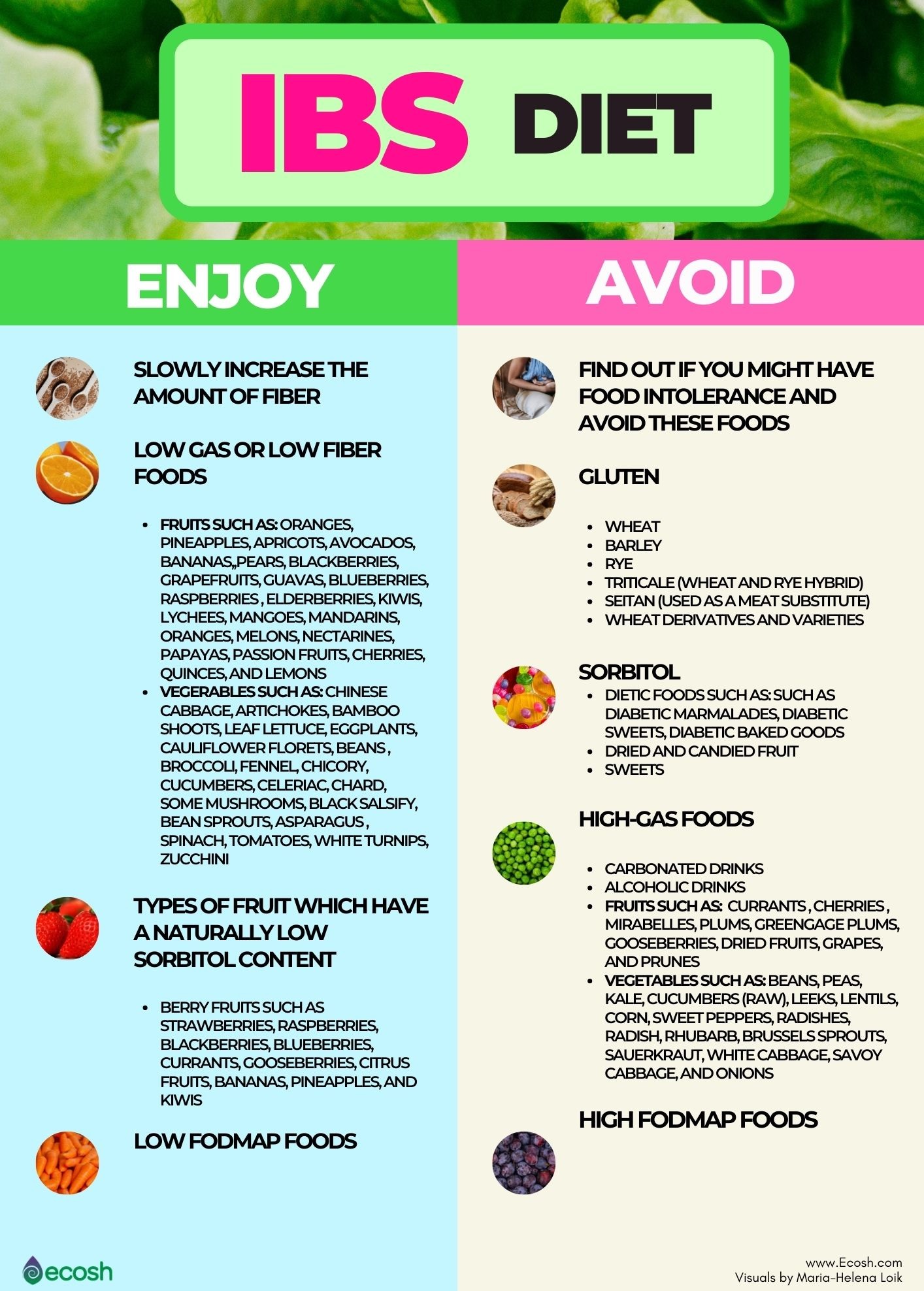


To provide quality nutritional support for IBS clients, it’s recommended to compile a comprehensive medical history which includes dietary restrictions, medications, diagnoses, and family history. While navigating IBS can be tricky, there are many nutritious food substitutions that will still support your clients’ nutritional needs. Certain vegetables and fruits (such as blueberries, kiwi, oranges, strawberries, carrots, eggplant, spinach, and zucchini).Research shows that those with IBS who follow a low FODMAP diet experience decreased intestinal discomfort, bloating, and gas and improved digestion and stool consistency. Ī low FODMAP diet focuses on eliminating (or limiting) certain foods that negatively affect the digestive system. Certain vegetables and fruits (such as garlic, onions, apples, mangos, cherries, peaches, pears, and artichokes).Wheat (such as cereals, bread, and crackers).Dairy (such as milk, yogurt, and ice cream).Some types of foods that are high in FODMAP include: Studies have found that those who eat a diet high in FODMAPs tend to experience more frequent and severe gastrointestinal issues than those on a low FODMAP diet. High FODMAP foods put additional strain on the body’s digestive system, which can lead to digestive issues. Polyols: 0.3 grams of mannitol or sorbitol.Monosaccharides: 0.2 grams more fructose than glucose.Oligosaccharides: 0.3 grams of fructans or galacto-oligosaccharides.There are some specific cut-offs to be considered high FODMAP, being that it contains more than one of the following : What are FODMAPs?įODMAP stands for fermentable oligosaccharides, disaccharides, monosaccharides, and polyols, which are short-chain carbohydrates that the small intestine absorbs, often poorly. One leading area of interest is the low FODMAP diet, which is a specialized diet designed to improve IBS symptoms.īefore diving into more details about what a low FODMAP diet is, let’s first start off by talking about what FODMAPs are and how nutritional care looks for dietitians working with IBS clients. While medications can help, nutrition and lifestyle changes can also make a difference, which is why people are turning to diet to help manage IBS. Some hallmark symptoms include abdominal pain, bloating, gas, diarrhea, and constipation, all of which can wreak havoc on one’s quality of life. IBS (irritable bowel syndrome) is one of the most common gastrointestinal disorders in the world, affecting 10-15% of the population. Learn more about how dietitians can introduce a low FODMAP diet for IBS clients. Low FODMAP diets can be beneficial for those with IBS, but this strict diet requires proper nutritional supervision. Irritable bowel syndrome (IBS) is a condition that negatively affects the digestive system and can cause unpleasant symptoms such as stomach cramps, bloating, and diarrhea.


 0 kommentar(er)
0 kommentar(er)
